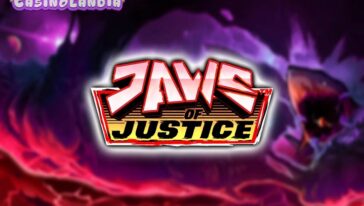- Game Providers
- Industry News
Swedish Court Lowers Sanction Fee for Hacksaw Studios


Swedish Court Lowers Sanction Fee for Hacksaw Studios
A legal dispute between game developer Hacksaw Studios and the Swedish Gambling Authority has concluded with a revised sanction that sheds light on developers' challenges in controlling how their content is distributed. The case, which centered on the appearance of Hacksaw's games on unauthorized websites, resulted in a sharply reduced penalty after the Swedish Administrative Courts reviewed the circumstances surrounding the breach.
In early 2024, Spelinspektionen reported that several online platforms, not licensed to operate in Sweden, had offered titles developed by Hacksaw Studios. The regulator identified this as a breach of the Swedish Gambling Act, which requires all gambling services to be offered through licensed entities. In response to this breach, Spelinspektionen issued a sanction fee of SEK 2.6 million, citing the developer's indirect involvement in allowing access to regulated content through unauthorized channels.
The case advanced to the Administrative Courts, where both parties presented their positions. Hacksaw Studios noted that while content distribution agreements typically contain jurisdictional clauses, developers are limited in controlling operator behavior after licensed software. Moreover, the company emphasized that total oversight of downstream distribution is not feasible, particularly in a global market where content may be redistributed through unauthorized means.
This case highlights a recurring issue in the online gambling sector—the balance of responsibility between game developers and operators regarding compliance with national regulations. Developers create and license content, but its final placement and accessibility can sometimes fall outside their control, especially in jurisdictions where regulatory enforcement is fragmented or inconsistent.


For suppliers operating in regulated environments, this outcome signals that mitigation measures such as geoblocking may be considered during investigations but do not entirely eliminate the possibility of regulatory action. Developers might be encouraged to reassess the effectiveness of their compliance protocols—not only at the point of distribution but also in monitoring how and where their content surfaces over time.
Operators, too, may face greater scrutiny over how they source and implement third-party content. As regulators focus more on tracing the origins of games offered on unlicensed platforms, there may be broader industry pressure to ensure tighter control over who is authorized to deploy and promote specific titles.
The online casino sector operates in an environment where jurisdictions differ not only in how they define violations but also in how they enforce them. This case illustrates the legal and operational consequences that may follow when content appears on platforms not aligned with national laws, even without direct distribution agreements.
Hacksaw Gaming Surprises You With Its New Hits
Test Your Gambling Skills On These 10 New Hacksaw Gaming's Slots

















